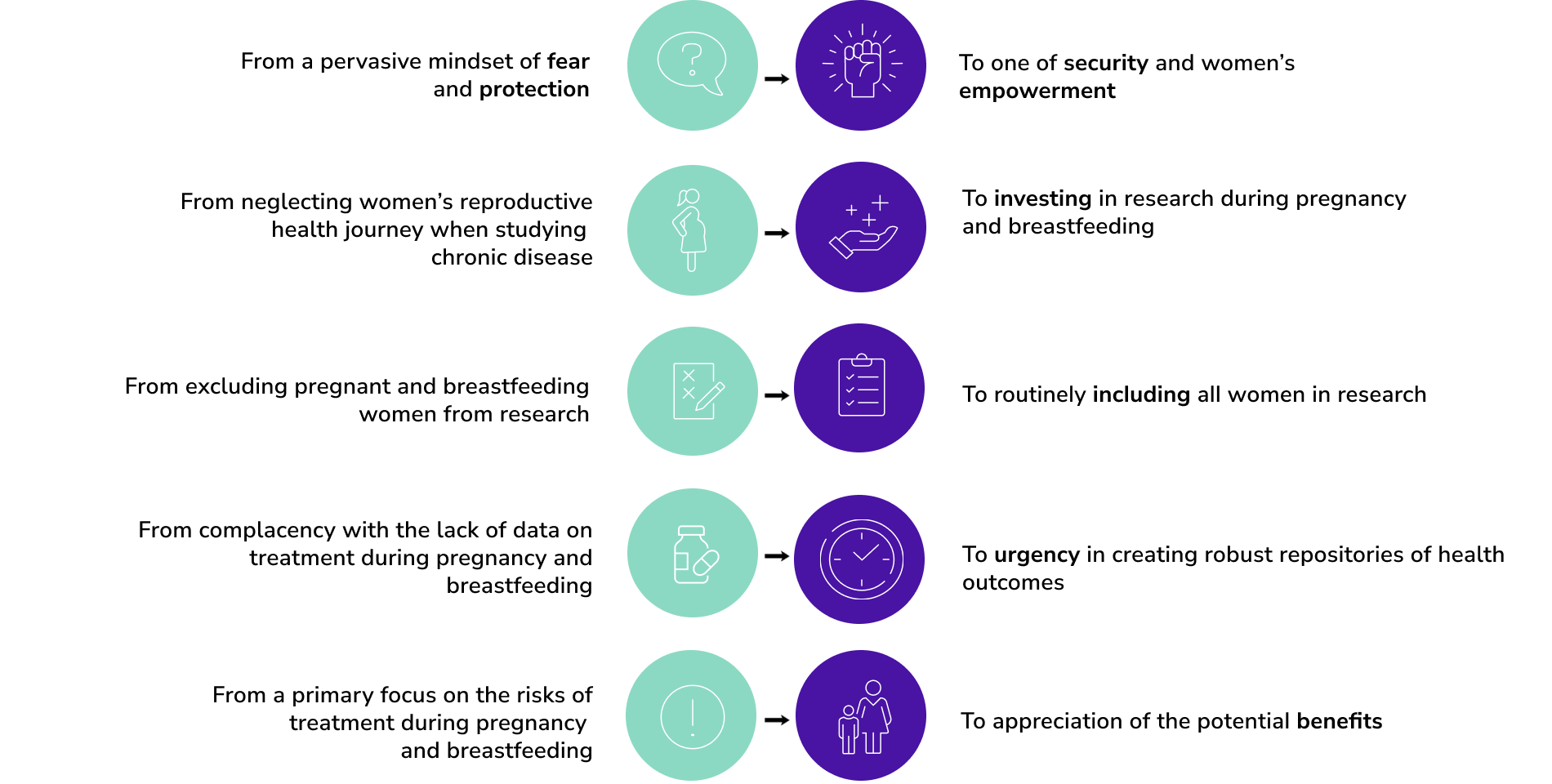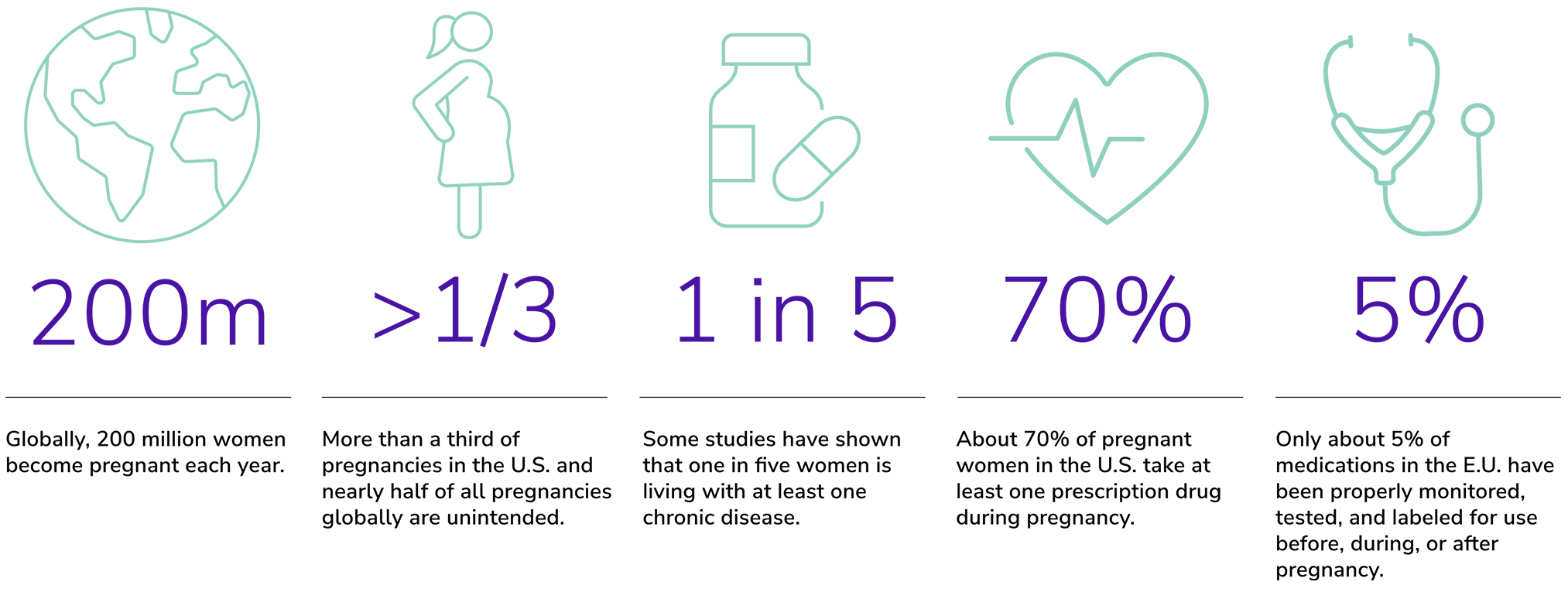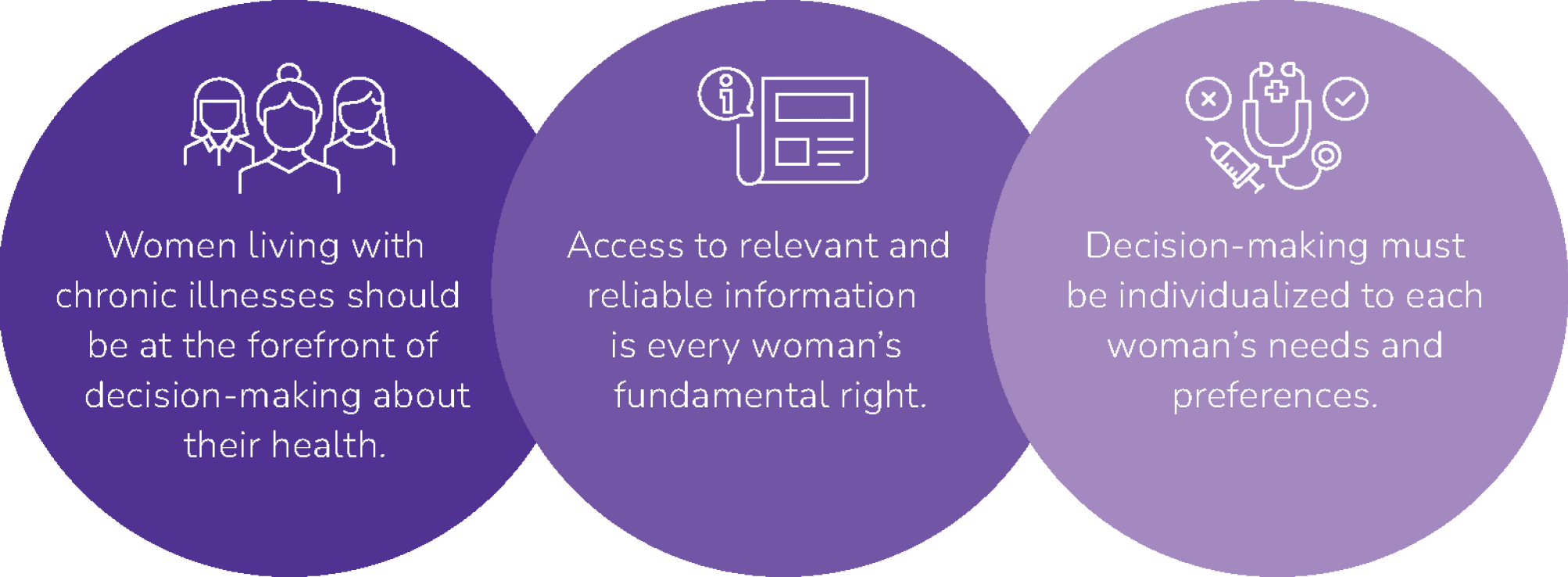We are calling for a paradigm shift in the pregnancy and breastfeeding journey for women living with a chronic disease. We envision a world where women are equipped with the information that matters most to them. A world where women’s care – and their experiences of care – respects their choices about their health.
What will it take to generate the data that women and their health care team need?
How can we ensure that data are available, interpreted in a balanced and individualized way, and communicated clearly?
Prioritizing the inclusion of pregnant and breastfeeding women in research is long overdue. The status quo, in which women are routinely excluded from biomedical research, can no longer be tolerated. The change we seek will require fundamental shifts:

Get the Full Report
Read the Report (PDF)
Challenges Women Face

Our Core Principles


Recommendations
Data Generation
- Invest in research that focuses specifically on the particular issues that women confront in managing chronic disease throughout their reproductive journey.
- Promote and facilitate women’s participation in clinical trials, registries, and other studies to generate the data needed to make strong, evidence-based, and individualized recommendations about the impact of chronic disease treatment on pregnancy and breastfeeding.


Data Availability, Interpretation, and Communication
- Make sure that women have access to relevant, contextualized information about chronic disease treatment and pregnancy and breastfeeding, and that health providers communicate this information in an understandable, supportive, and individualized way to patients before they become pregnant.

